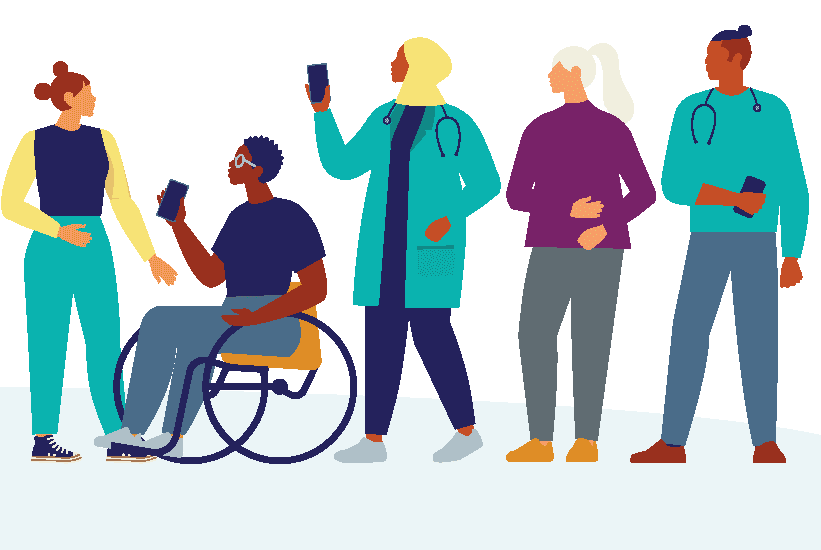
Past Mental Health, Addictions and Chronic Pain Community of Practice Sessions

Catch up with recordings and resources from our past events
Past sessions are certified as part of the Mental Health, Addictions and Chronic Pain CoP Self Learning Program where participants can earn Mainpro+ credits for reviewing past session recordings (both video and audio are available) and resources on their own time. To participate in self-learning:
Step 1: Determine which past session date(s) you’d like to review (see events below).
Step 2: Review the recordings and resources.
Step 3: Complete the self learning evaluation
This Self Learning Program has been certified by the College of Family Physicians of Canada and the Ontario Chapter for up to 1 Mainpro+Ⓡ credits for up to a total of 63 credits. Questions? Contact practisingwell@ocfp.on.ca.
Treating these conditions in an integrated way has become more demanding and complex – now more than ever. Find information to support the care you give patients – in a way that also considers your wellbeing.
Perinatal Mental Health: Practical Screening and Support for Family Physicians
Many patients may enter pregnancy while managing existing mental health conditions, and others may develop symptoms postpartum. Given this, it’s essential to understand how to screen and support these patients safely.
Psychedelics and the Use in Treatment of Mental Health
There is growing interest in the use of psychedelics for the treatment of PTSD, depression and substance use disorders. Patients may ask their provider about these options, but family physicians are unaware of the latest data on safety and efficacy or understand what services are available in Ontario.
COVID-19: Sharing and Healing from Past Experiences of Caring for Patients during the Pandemic
Collectively, physicians faced and/or continue to face a trauma related to caring for patients during the COVID-19 pandemic. However, few family physicians have had the opportunity to collectively discuss this.
Authorizing Cannabis
Since 2018, patients have been able to access medical cannabis that has been authorized by a physician who signs a medical document. New research supporting the therapeutic use, safety and efficacy on cannabis is only now emerging, which puts family physicians in a difficult position as they may be asked to authorize cannabis when they are not familiar with the process.
Tips and Tricks for Addressing Burnout
Administrative burden, including completing complex forms and reviewing EMRs are all contributing to burnout in family medicine. During this session, our panelists will discuss tricks to efficiently review EMRs, setting boundaries with patients, taking vacations and training your office staff to take on some of the burdensome tasks.
Social Prescribing: Addressing the Social Determinants of Health
Even if a family doctor makes the correct diagnosis and prescribes the most appropriate treatment to address an illness, if a patient is unable to access the treatment due to social or financial circumstances the patient will not improve.
Best Practices for Nicotine Cessation
New nicotine delivery systems, policies and evidence are evolving to include nicotine pouches, ‘heat sticks’, and vaping products. Family physicians may be unfamiliar with emerging products and evidence and unable to provide guidance to patients.
Navigating the Complexities of Opioid Prescribing for Chronic Pain
New family doctors are often hesitant to continue prescribing opioids for patients, including to those who need opioids for pain management. However, opioids can be a helpful treatment for pain and it’s important for family doctors to know how to prescribe them effectively.
Supporting patients with ADHD and comorbidities
ADHD is often missed due to its shared characteristics with anxiety and depression, or because patients have multiple mental health conditions in addition to ADHD.
Indigenous cultural safety: Confronting anti-Indigenous racism and providing trauma-informed care
Indigenous people often face discrimination when accessing the health system, and many have histories of health-related trauma. To address these health disparities that continue disproportionately impact Indigenous peoples, The Truth and Reconciliation Commission’s Calls to Action recommended providing cultural competency training for all health care professionals, including skill-based teaching in intercultural competency, conflict resolution, human rights, and anti-racism.
Climate Change: A Growing Concern for Patients and Physicians
Climate change is a major source of anxiety for many. To improve the quality of life for those struggling with climate-related concerns, it’s essential to have strategies to address climate anxiety.
Harm Reduction in Family Practice: Responding to changing policies
Evidence demonstrates the effectiveness of harm reduction interventions in improving health outcomes, building trust, and reducing substance-related harms.
